More on Mark Meek, the senator who killed the Democrats’ transportation bill – BikePortland
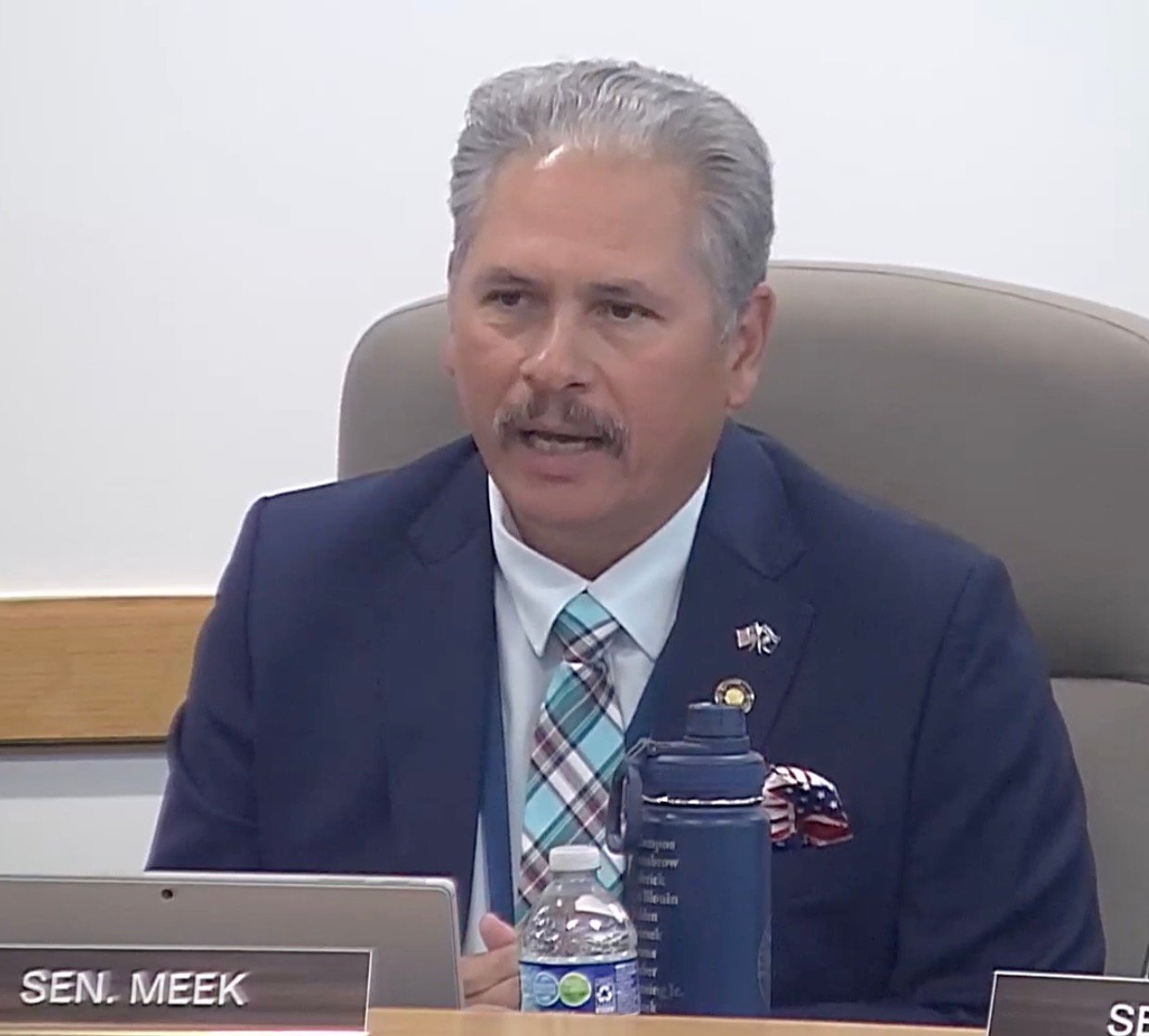
Many members of the Oregon Republican party are thrilled that transportation funding legislation did not pass this session. And while they take credit for it, the reason a bill didn’t pass was because of Democrats.
Or to be more precise, a Democrat. One named Mark Meek, a senator who represents District 20 which includes parts of east Portland, Happy Valley, Oregon City and Gladstone.
Meek’s opposition to House Bill 2025 sealed its fate. The former pub owner and now real estate agent accrued a superpower this session by being the vote that decided whether or not Democrats held onto their supermajority. The party needed all 18 of their members in the 30-person Senate to pass the bill. When Senate President Rob Wagner couldn’t get one other Republican “yes” to offset Meek’s “no,” the game was over.
So why was Meek so opposed to the bill? I can’t get into his head and I haven’t talked to him directly, but I have tracked down several recent comments about the bill made in committee which help shed light on his perspective.
Before I get into this, it’s worth noting that Meek comes from a very purple district that was held by a Republican for 12 years before he won the seat. It’s almost split in half by Democrats and Republicans. In 2022, even after the district was redrawn for a stronger Democratic advantage, Meek eeked out a victory by garnering 50.4% of the vote compared to his challenger’s 49.6% — a difference of just 503 votes out of 62,131 votes cast.
So when it comes to issues like taxes and transportation, you can see why Meek needs to play it very safe.
That didn’t stop him from supporting the bill when it first came to the Joint Committee on Transportation Reinvestment (JCTR) on June 9th.
Meek, then a member of the committee, opened his remarks by thanking Senator Bruce Starr, a Republican, for his work on the bill. (Despite Republican claims that the process was not bipartisan; Starr, Boshart Davis, and other members of the Republican party were at the table as Democrats tried to include their ideas into a final package.)
“I will vote and support the introduction of this bill,” Meek said to his fellow committee members. But his support was conditioned on, “knowing a lot of work has to be done.”
Already June 9th, it was just 20 days before the end of session and while Meek acknowledged it was a “short period of time,” he felt the bill was important enough to get done.
Meek’s concern about the rushed timeframe and the delay in getting the bill out was shared widely among lawmakers and advocates from across the political spectrum and will go down in history as one of the primary errors of Democratic party leadership. Over two months passed from when Democrats first revealed an official funding framework in April to when HB 2025 became public around June 9th. In that interim period, impatience grew so much that members of the Democrat and Republican parties bothunveiled bills of their own (that would later become amendments to the official bill).
Getting back to Meek, he was sanguine about the bill’s prospects on June 9th.
“I would call this the, you know, the foundation, the starting point,” he said at that first committee meeting. “Let’s let’s have some really good conversations, and let’s keep our options open, because I think Oregonians are looking for us to to really pass an appropriate transportation package that will both be responsible, palatable and effective with our transportation system right now, on all levels. I’m just hoping that we all keep an open mind, and we’re all able to really listen to each other and collaborate and come to what I would say is a proper solution for all of us.”
I hope to someday ask Meek what exactly his “proper solution for all of us” would be; but for now let’s see what else he said about it during the session.
One day later, on June 10th, there was another committee hearing on the bill. This was where we get the first hint that Meek might be frustrated at the rushed timeline for the bill. At one point he asked, “How much revenue is this bill generating in general?” To which he was told by someone from the Legislative Fiscal Office that those numbers were still being crunched and would not be available for two more days.
I’m not sure if or how much this answer bothered Meek, but other members of the committee were reasonably annoyed that a bill was having public hearings before basic financial details were worked out.
“I am surprised that we’re not getting any dollar amounts until Thursday, which is after most of the public hearings,” said House Rep and committee Vice-Chair Shelly Boshart Davis that Tuesday. “I think that’s a bit irresponsible for the public to weigh in when we don’t know what kind of revenue is being raised.”
(One likely reason the number crunching took so long this year is because lawmakers were wrestling with an extremely challenging set of cost tables as part of their revamp of the Highway Cost Allocation Study (HCAS), an annual report that calculates what different types of vehicles pay to use the roads.)
The next we heard from Meek was one week later. By that time, the fiscal analysis had been completed, but lawmakers’ heads were spinning as they tried to keep track of 18 different amendments that had been filed.
In his remarks at the June 17th committee meeting, Meek’s tone had changed. “At the risk of being critical, I’m going to be critical,” is how he kicked off an exchange with JCTR Co-Chair Sen. Chris Gorsek:
Meek:
“I don’t see how anybody can expect us to vote on this tomorrow or the day after based on everything that was presented,” Meek said, “and the time we have to digest this and even to amend it or correct it and make sure it is accomplishing what we are looking at.
I am frustrated to the highest level, and you can expect a no vote out of me right now.”
Gorsek:
“You know that in times like this, there are going to be problems getting information from LRO [Legislative Revenue Office] and LFO [Legislative Fiscal Office]. This is not an unusual circumstance, and things are still coming together. That’s not our choice, but it is what’s been happening, and so we’ve been delayed, and we have presented what we have at the present time. But I hope you won’t rush to judgment on this and that you will give it a chance, because there’s still a lot more information to come out.”
Meek:
“Co-Chair Gorsek, can you understand the exercise that we’re going through? We’re scheduled for an informational meeting on this and we barely get it an hour ago or so. We are all very busy at this time. And then we look for numbers. We’re supposed to be digesting numbers. We asked for numbers last week. We finally got them on Thursday or early Friday.
Co-Chairs Gorsek and McLain, I don’t I don’t blame you, but we started this exercise June 9th, and trying to rush this not a good practice.”
Gorsek:
“And let me say I totally understand what you’re saying. We too have been very frustrated with how slow the information has been coming to us and and I don’t blame you a bit for being frustrated. We’re frustrated as well, but I hear what you’re saying.”
Three days after this exchange where Meek expressed his intent to vote against the bill, he was removed from the committee.
On June 20th, Meek was seated on the dais of the committee as a non-voting member and he got one last chance to speak his mind.
Meek stated that his opposition was to the process, which he felt was rushed. When he began to share a personal experience to flesh this out, I perked up. He then spent several minutes recounting a story about being a small business owner in the 1990s and how he tried to redevelop a theater in southeast Portland into a tavern venue called the Mt. Tabor Pub.
“It took me months to go through the process,” Meek recalled. He explained how he had to get buy-in from neighborhood associations, then get city permits, and deal with the Oregon Liquor Control Commission (OLCC) to get a new license. Through it all, he encountered obstacles. “They wanted me to put in a fire suppression system. I didn’t have money for a fire suppression system, so I figured out a way to navigate and overcome that issue… Then I had trouble running my coolers… and I had to get a rotor hammer and cut four-inch concrete in half to get the glycol system to operate and provide beer down to the servers,” he continued.
It was “hurdle after hurdle after hurdle” and “misstep after misstep after misstep,” Meek shared. But he persevered. “I got it opened, only to be a failed business,” Meek said.
The relevance of this comparison was somewhat lost on me, but Meek said he’s seen a similar “misstep after misstep” with how the process behind HB 2025 had gone.
“The [bill] language is incorrect; we’re attending to technical fixes; we have information coming to us late; our committee was scheduled for 2:30 and we start until 4:00 or so,” Meek said, listing some of his frustrations.
And then we got to the heart of his opposition:
“I have to just fully state that this package is fundamentally flawed for many reasons. One of the reasons is that it’s not affordable to Oregonians. We are facing dire, and I do have to say dire, economic times. We’re dealing with inflation. Can’t afford to feed your families because milk’s high. The cost of eggs are high. Families are really, really struggling…
The world has changed over the last two, three years, and yet we’re going to look at this new tax solution? I am the first to stand up here and tell you right now that I’m ready to vote on a tax increase this year to help make ODOT whole, to do the work that ODOT needs and our Oregonians want to see in filling potholes, fixing bridges, all of the rest. But this is not the solution at this time.
I agree there’s some great programming in this bill, but I just can’t support it. And what I’m frustrated by is that, my lesson I learned in my life is to take a step back from that mistake I made, and it’s never too late to do the right thing.
We have very little time. I’m happy to work the next 48 hours, 72 hours straight, to get together and figure out a best way to resolve this issue for Oregonians. But that is not the case. I was removed from this committee, so I’m going to be a ‘no’. I will be a ‘no’ on the Senate floor of this is the version that comes across…
I really, really want to support this body doing a proper solution to help Oregonians, and I just can’t support this bill.”
And that was that. Not only did Meek remain a ‘no,’ but six days later he went rogue. He spread disinformation about the bill on social media, saying it would start a tolling program when that was easily disprovable information.
Did Dems ruin their chances at persuading him by booting him off the committee? Was his “no” vote a case of sour grapes? Was Meek simply unable to support such a large tax package as a purple district senator?
Only Meek knows how he came to his decision. And as the dust settles on this historic debacle, he likely knows how consequential it was to the future of transportation in Oregon.
Share this content:

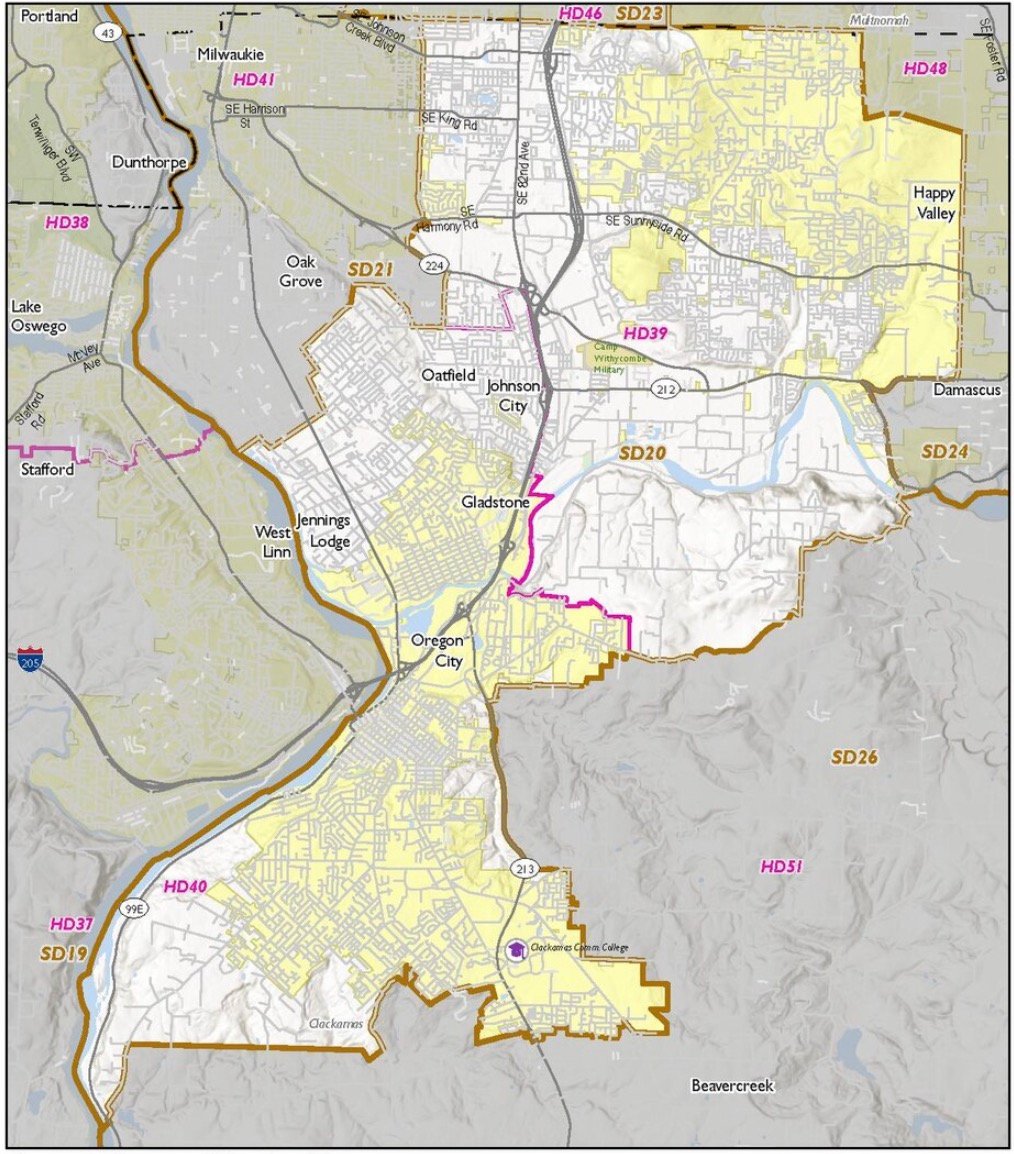

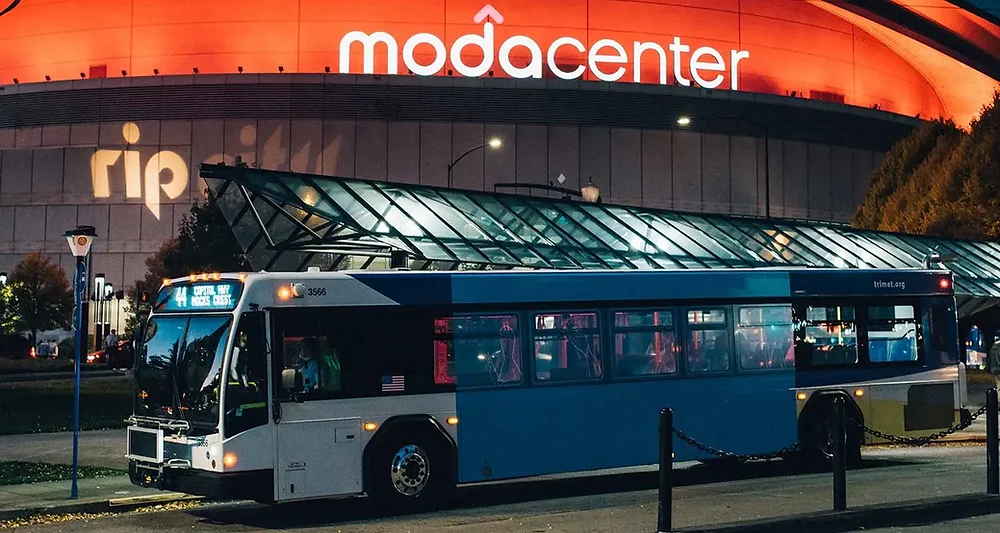


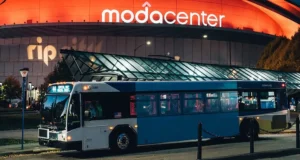



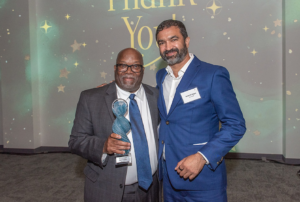


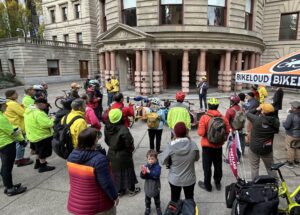


Post Comment